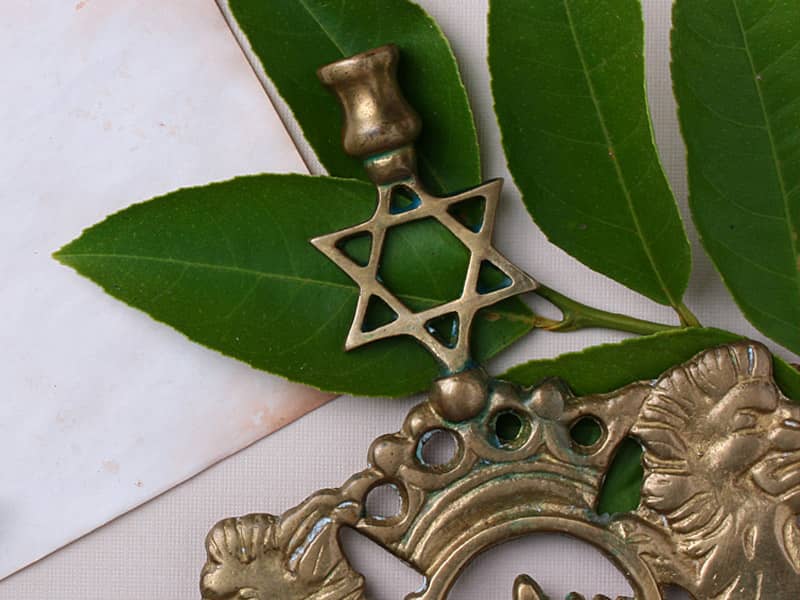The father of one of my closest friends, who is Jewish, died last week. I just found out about it yesterday. The funeral, which will be in Philadelphia, is tomorrow, and its impossible for me to attend. What's the right thing to do, aside from sending a card? I think that flowers aren't right. What is? -- W.B.
You're right. Its usually not appropriate to send flowers to Jews who are mourning. About the only time they may be right is if the family is Reform, and even then it's kind of iffy. Aside from attending the funeral, which you can't do because of the mileage between Texas and Philly, and aside from sending a condolence card, which you can do (but which seems a bit impersonal if your friend is especially close to you), I suggest that you make a contribution to a charity or cause that you know was close to the heart of your friend's father. It might be something like Habitat for Humanity or the the American Heart Association, or a specifically Jewish cause, like the United Jewish Appeal. If you lived closer to Philadelphia, you could check your friend's father's obituary in the local papers, since death notices often specify the charities that are preferred for donations. One cause that's always safe to contribute to in honor of a Jew who has died is the Jewish National Fund (42 East 69th Street, New York, N.Y. 10021; phone: 800-345-8565). JNF plants trees in Israel. Not too many Jews disagree with that. You can call the 800 number and charge a contribution on your credit card, and JNF send a card to your friend. She'll be pleased that her father's memory is being preserved through a live tree in a land which is special to most Jews.
If an Orthodox Jew comes to my house, what can be served if my kitchen is not kosher? Are all meals suspect because I don't have separate cookware for dairy and for meat?
--Scavenger
The laws of kashrut (Hebrew for "kosher" or, literally, for "fitness") are complicated and open to much interpretation. As with any religious laws, there are gradations of keeping kosher, just as there are gradations of being Orthodox.
Some kosher products are labeled mehadderin min ha-mehadderin ("superfine") to indicate that they comply with the most stringent Orthodox standards. Meats that satisfy these high standards are labeled "glatt kosher" or "halak" ("smooth"). As Rabbi Arthur Green writes in "These Are the Words: A Vocabulary of Jewish Spiritual Life": "The Jewish people needs to be kept pure to fulfill its holy mission. Kashrut is seen as one of the chief means to such purity, and to keeping the Jews both separate from others and devoted to the word of God."
Regarding your possible dinner guests: First, ask if they even want to eat at your house. This may seem awkward, but they'll appreciate your concern, since some Orthodox won't even eat at the home of other Orthodox Jews--again because of varying standards of adherence to kashrut. If they want to eat at your house, you're safest serving cold food, such as fruit and vegetables, on clear glassware or fancy plastic plates. If neither is available, china would be acceptable. Don't use pottery or ceramic-ware because it's believed that these absorb oils and other substances from foods--in this case, from the non-kosher food that you usually serve. Use either new forks, spoons, and knives or plastic ones.
If you'd like to serve a full meal, you can probably find a premade kosher meal in the frozen-food section of your supermarket. If you warm it in an oven, wrap it twice in alumninum foil; if you warm it in a microwave, wrap it twice in plastic wrap. These double wraps are believed to protect it from any non-kosher substances in these appliances.
I won't even talk about not mixing dairy and meat, since that's the best known aspect of kashrut, but if you serve meat, don't forget to provide a nondairy creamer for coffee.

